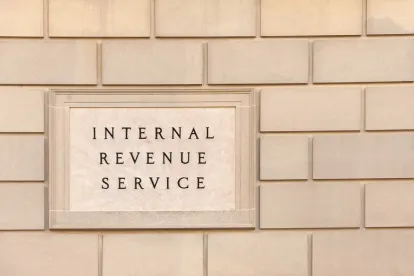Lately, we have been frequently asked the question: “I file US tax returns and pay taxes here. Are my cryptocurrency transactions taxable or reportable in the US?”
The answer for US persons and US taxpayers most likely is “yes.” US persons are generally taxable on income earned worldwide, regardless of the manner in which that income is paid (e.g. currency (foreign or domestic) or property (tangible, intangible or virtual)). Thus, if you have bought, sold or exchanged cryptocurrency, those transactions could be subject to federal tax. If your cryptocurrency is held offshore, a number of offshore reporting obligations could also apply to these holdings.
Now is the right time to come forward and resolve any US compliance issues related to your cryptocurrency holdings. As we have seen in recent cases like the Coinbase summons enforcement proceeding, the Internal Revenue Service (IRS) has stepped up its enforcement efforts regarding undisclosed interests in cryptocurrency worldwide.
How should you come forward? Following an IRS-attended conference earlier this year, comments began circulating that the IRS was considering the creation of a formal voluntary disclosure program for cryptocurrency transactions, similar to the now-ended Offshore Voluntary Disclosure Program. (We reported on that program numerous times, here.) Unfortunately, the IRS has now squashed this rumor, stating that “IRS is not contemplating a separate program related to offshore [virtual] currencies.” A domestic program was not even mentioned.
Despite this news, a number of disclosure options remain available for bringing your US and foreign cryptocurrency into compliance. The IRS’s longstanding voluntary disclosure policy remains in full force and effect. This policy acts to reduce or eliminate the risk of criminal prosecution related to nondisclosure of domestic or foreign taxable assets, and can provide avenues to reduce civil penalties as well. Further, the IRS’s Streamlined Filing Compliance Procedures and Delinquent International Information Return Procedures are still active and may provide reduced (or no) penalties for US international tax non-compliance in appropriate cases.
Practice Point: Beyond the short answer of “yes, cryptocurrency is taxable,” a number of open questions regarding the taxation and reporting of cryptocurrency in the US remain. For example, determining what offshore crypto holdings are subject to FBAR and Form 8938 reporting remains complicated and unclear. Also, although tax reform has eliminated the use of Section 1031 exchanges to avoid currently being taxed for personal property like cryptocurrencies, the IRS’s position on exchanges that occurred prior to 2018 is still unknown. There are also open valuation questions, particularly for crypto accounts subject to access limitations like lock-up periods. The tax treatment of so-called hard and soft “forks” is also unclear. Finally, crypto exchanges are navigating a number of open reporting and compliance issues. If you have significant holdings in cryptocurrency, consult with a federal tax advisor who understands the tax aspects of this unique asset to ensure your tax reporting is correct and complete.
Christopher Saddock, a secondee in the Firm’s Dallas office, also contributed to this article.





 />i
/>i
